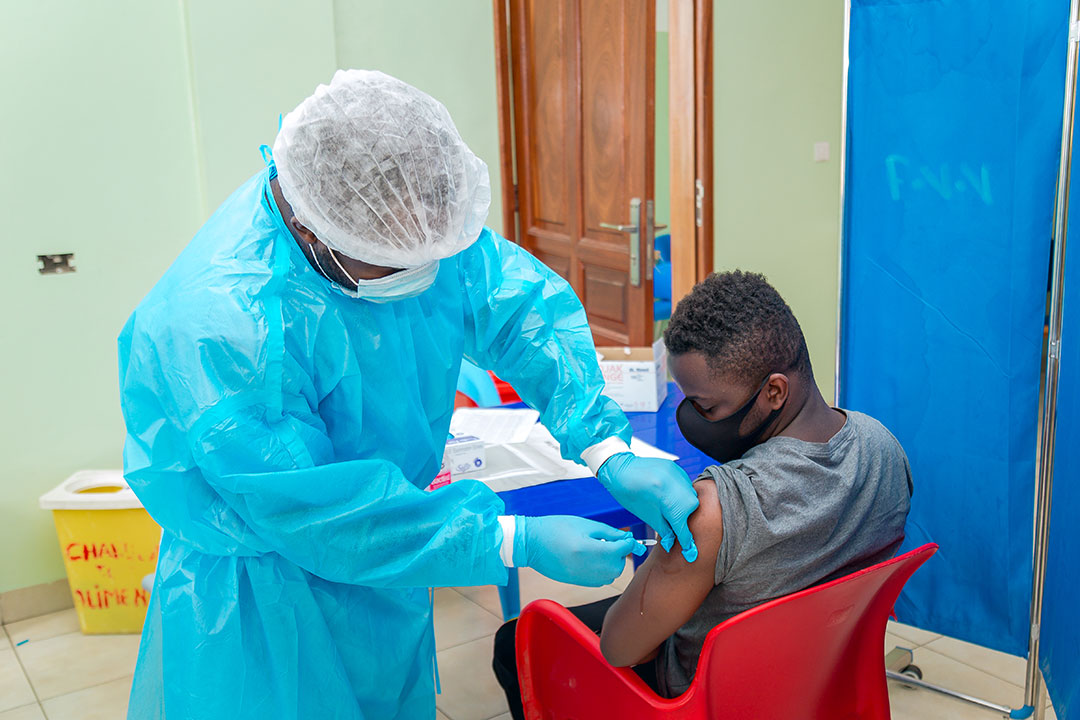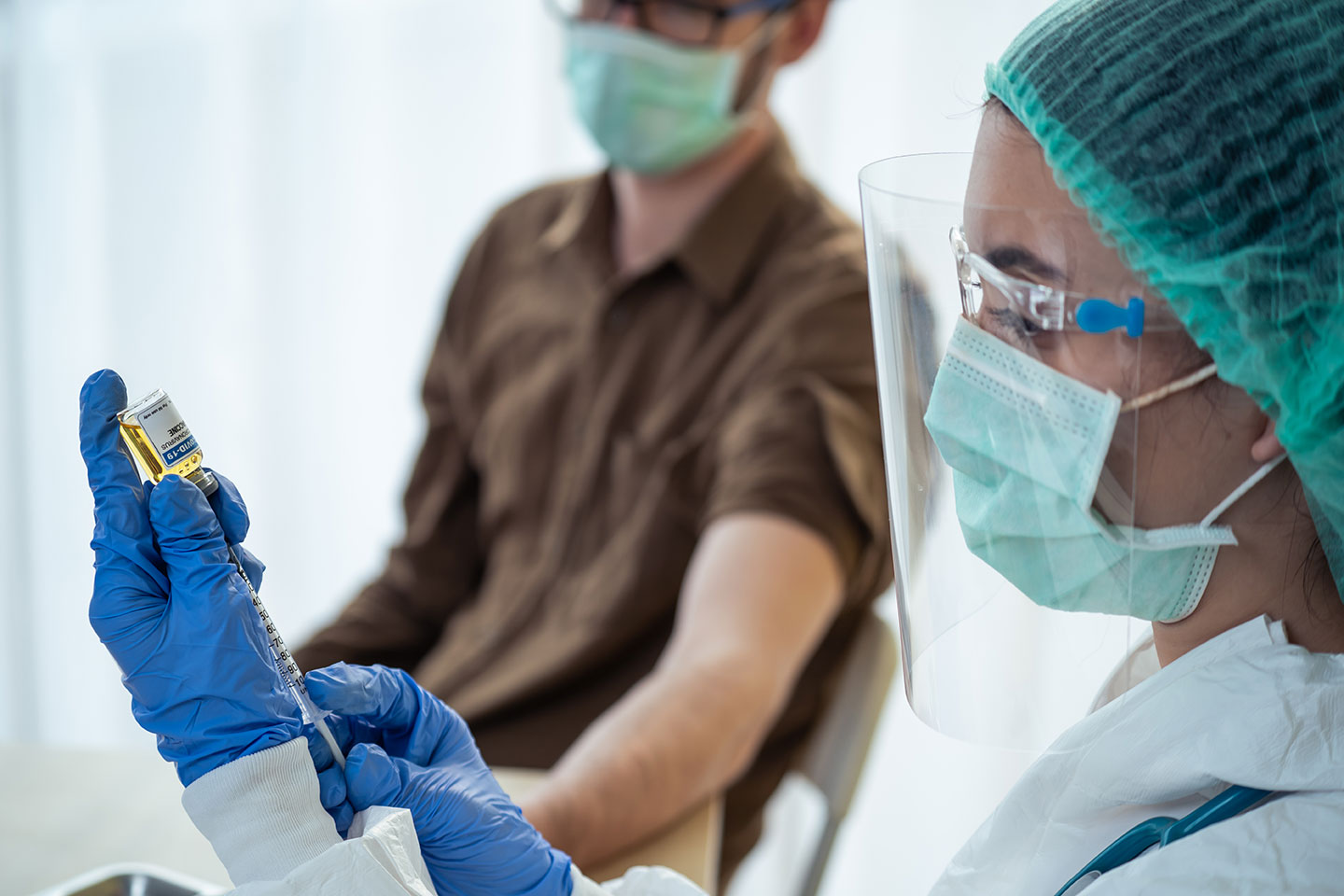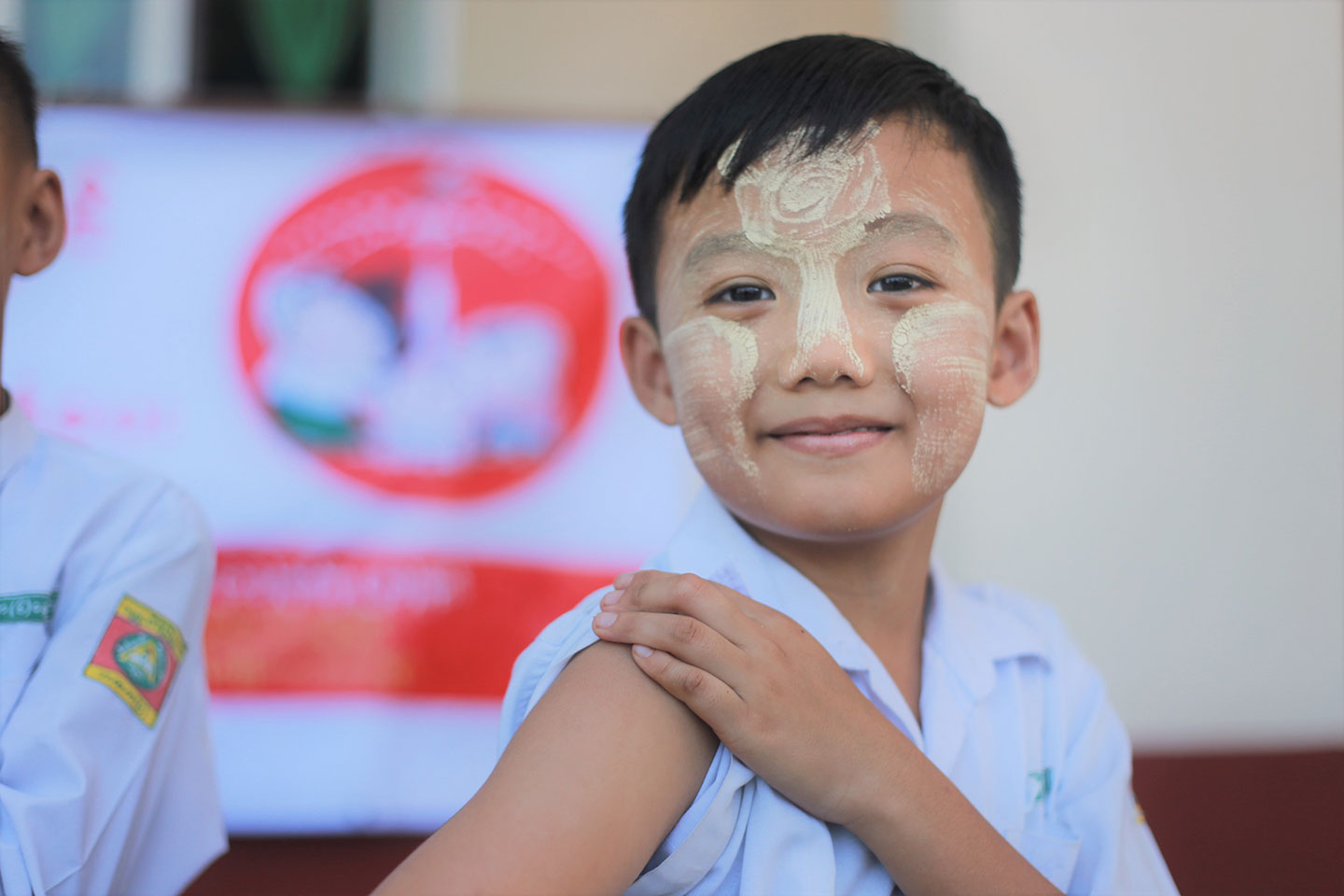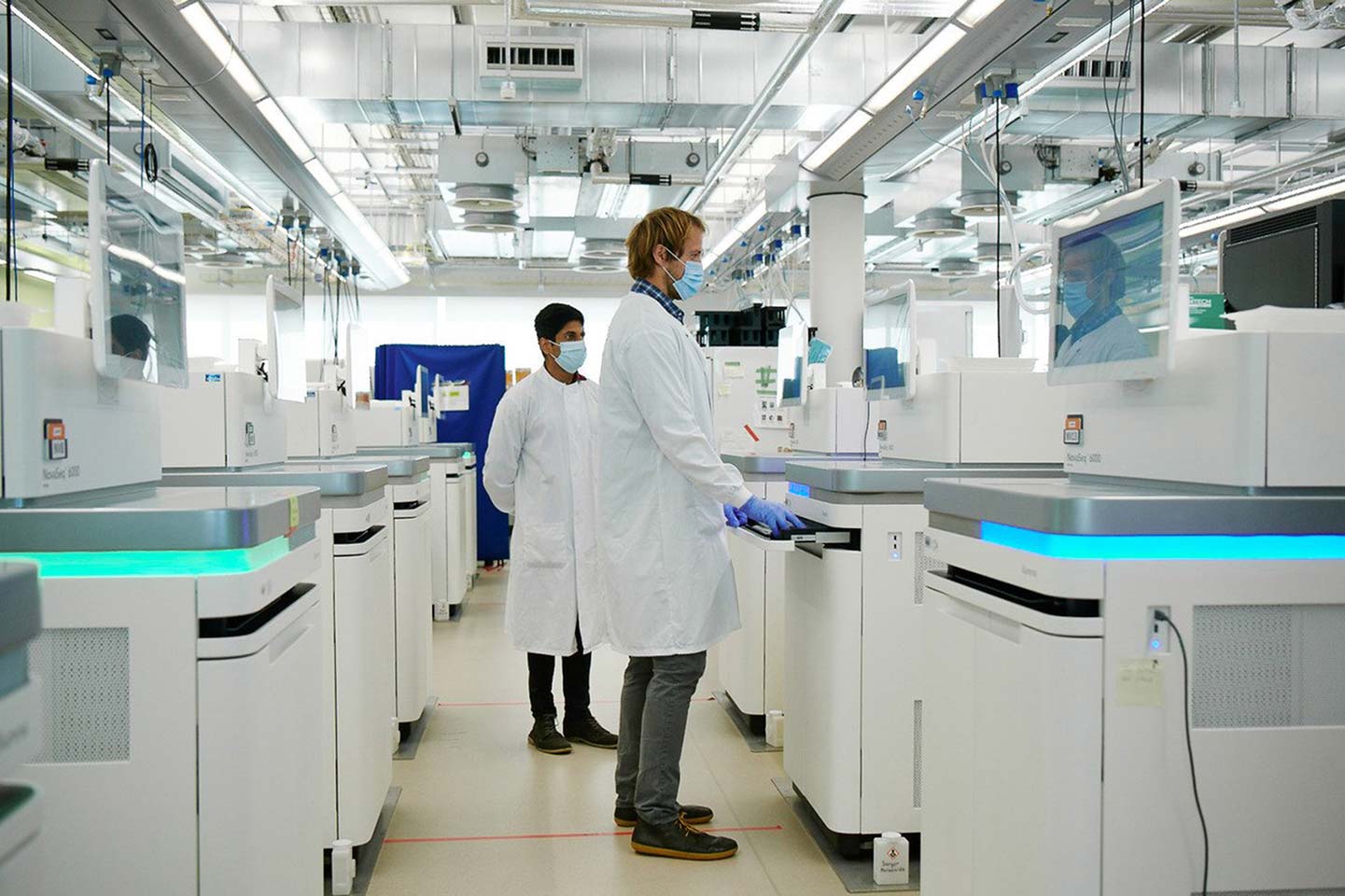Why is a global Covid-19 vaccine rollout vital?
The Covid-19 pandemic is global, and to bring the pandemic to a close, a collaborative, global approach is needed. But why is it so important that all countries have access to vaccines as soon as possible?
- 24 March 2021
- 6 min read
- by Wellcome
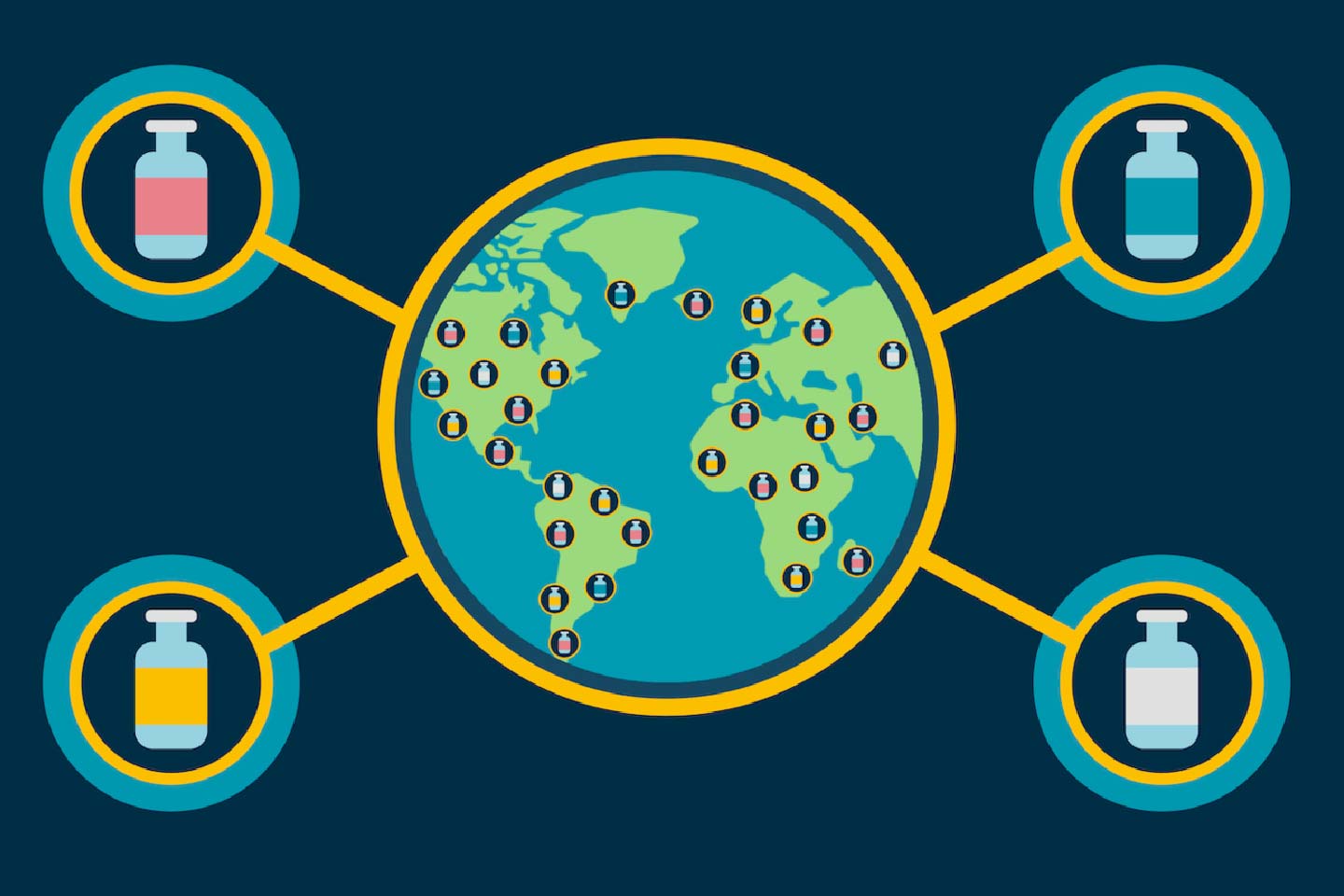
To date, more than 200 million Covid-19 vaccine doses have been administered in over 50 countries, but the global roll out so far has highlighted huge inequalities.
Together, the United States, China and the UK account for around 120 million doses, two thirds of all the vaccine doses given, while most countries have yet to start vaccinating their populations and some countries are not able to access vaccines at all.
COVAX, a multilateral initiative led by CEPI, Gavi and the World Health Organization, is working to ensure that vaccines are distributed fairly and that no countries are locked out of access to Covid-19 vaccines. The programme has made great progress so far and it is expected that as many as ~1.8 billion doses will be made available through COVAX in 2021.
However, most of the vaccine doses produced are still being bought up by countries making deals directly with pharmaceutical companies for their populations. So far, more than half of all confirmed Covid-19 vaccine orders have been from just a handful of high-income countries.
There are many public health, scientific, economic and moral reasons for an equitable global rollout.
Jeremy Farrar discusses why international collaboration is essential if we are to achieve a successful global Covid-19 vaccine rollout.
We need to help prevent new variants spreading
New strains of the virus, like those that were first identified in the UK and South Africa, have a greater opportunity to emerge if there is a lot of virus in circulation with many hosts.
We have already seen that some of these variants may reduce the efficacy of Covid-19 vaccines. Suppressing the spread of the virus and existing variants is essential to reduce the number of new variants emerging, some of which may have potential to evade existing vaccines.
If we reduce the amount of virus everywhere, we reduce the opportunity for it to mutate and potentially produce new variants of concern. Vaccination, alongside public health interventions such as social distancing and handwashing, is one of our best tools to reduce the level of virus in communities.
However, vaccinating a lot of people in just a small number of countries will continue to leave high levels of virus circulating in other countries, providing opportunities for new variants to emerge. In a worst-case scenario, future Covid-19 variants may be able to evade the vaccines that are available.
Have you read?
As well as protecting against severe disease, vaccines are helping to reduce virus levels globally for many diseases. In order to do the same for Covid-19, vaccines must be rolled out on a global scale, not just in some countries. Otherwise we will all remain vulnerable.
Global economic recovery depends on it
Most major economies across the world have been severely affected by the pandemic, and equitable access to Covid-19 vaccines is vital for achieving economic recovery.
A recent study on the topic, commissioned by the International Chamber of Commerce Research Foundation, found that if access to vaccines is not coordinated at a global level, the economy could contract by up to $9.2 trillion this year – equivalent to 7% of global GDP.
Since all countries depend on other countries for trade, individual economies are unlikely to see significant recovery until their trading partners have similar access to vaccines. According to the study, unless a coordinated global vaccine rollout takes place, advanced economies could lose as much as 4% of their GDP by the end of 2021 – despite having effective vaccination programmes.
Economic growth urgently needs restarting to prevent a major global economic crisis and further job losses. To help us go back to work, return to school, see our families or have holidays abroad – and for economic growth to resume we need to make vaccines available everywhere.
The vulnerable around the world need to be protected
There is also a strong moral argument for making sure we equitably distribute Covid-19 vaccines around the world, so that those that need them most have access.
While more than 200 million doses have already been administered worldwide, the global roll out so far has highlighted vast inequalities. With many higher income countries securing deals directly with pharmaceutical companies, many lower income countries will rely on COVAX to gain access to Covid-19 vaccines.
A global roll out needs to happen in a fair way so all countries can benefit, regardless of their ability to negotiate a deal. Covid-19 is exacerbating the already vast health inequalities across the world. Vaccinating the whole population of a country before allowing others access could put millions of people at unnecessary risk.
Although vaccine production is being scaled up, supplies could be limited for some time and far below levels of demand. If there is no collaborative effort to manage vaccine access and distribution in a fair way, there could be hoarding in some places and shortages in others, meaning vaccines won't reach the most vulnerable in many countries, potentially for years to come.
We need governments to back COVAX and other global initiatives, and to share vaccine doses with other countries that need them. Any delay in ensuring fair and equitable access will only prolong the pandemic.
None of us are safe, until we are all safe
A lot of work is already being done by international organisations working together to ensure vaccines are available, accessible, appropriate and affordable for everyone.
Although this is good news, more is needed. Above all, the pace of the global rollout needs to increase. With Covid-19, we don’t have time to roll the vaccine out gradually, country by country. The best thing we can do to get control of the pandemic is to vaccinate around the world as quickly as possible, to protect populations everywhere.
The faster we can make sure the most vulnerable people are safe, the faster we can lift restrictions and return to school and work everywhere, and achieve global economic growth.
Jeremy Farrar explains the need for equitable access to Covid-19 vaccines, and why it is one decision point that we must get right in 2021.
This is one of those great examples where the public health, the scientific, the economic, the financial and the moral perspectives need to come together. The only way to bring the pandemic to a close and improve all of our lives is to make the vaccines available to everybody. I actually feel very optimistic that that will be the course that humanity chooses in 2021.
Jeremy Farrar, Director of Wellcome
WEBSITE
This article was originally published by Wellcome under Creative Commons Attribution 2.0 UK on 2 March 2021.
